Workshop: Gendering
Gendering is two separate events with Professor Anne Fausto-Sterling and Professor Julie Nelson; an academic open workshop the 16th and an interview and conversation from a queer perspective the 17th of March.

Info about event
Time
Location
Aarhus (DK), Aarhus University, Auditorium 1441 - 012
Organizer
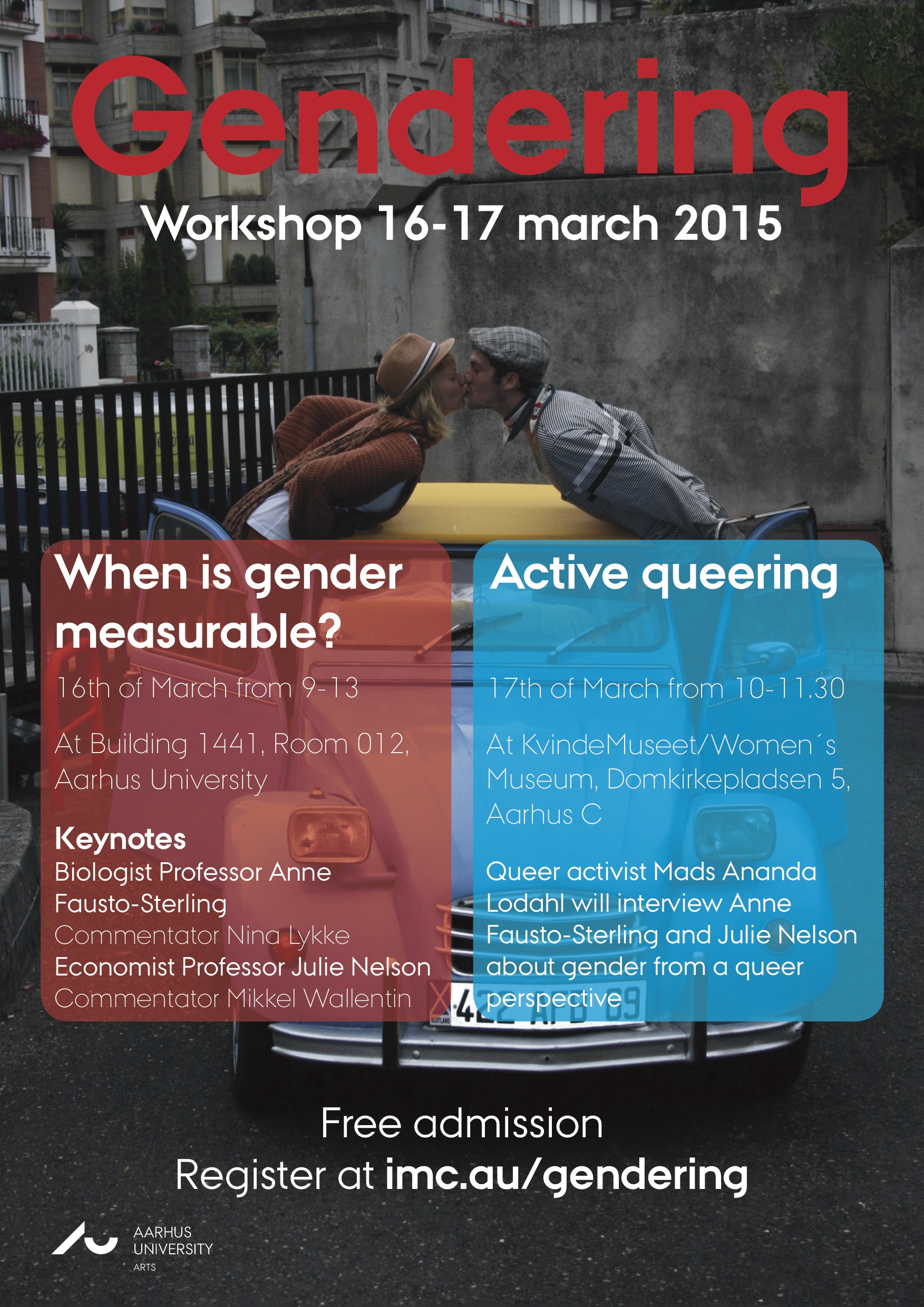
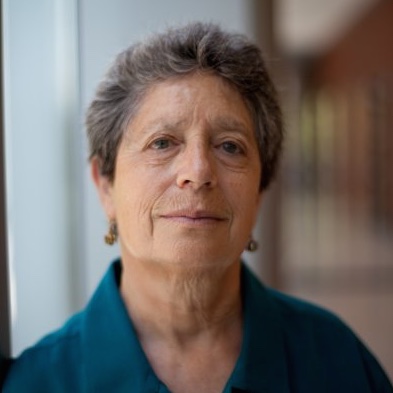
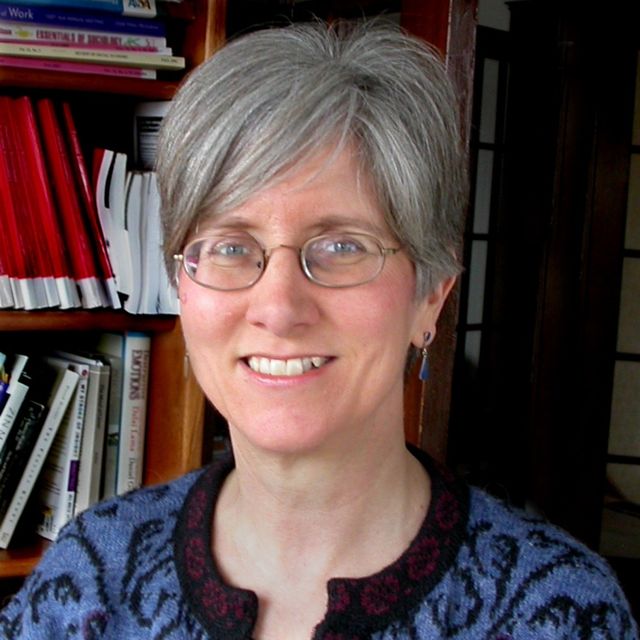
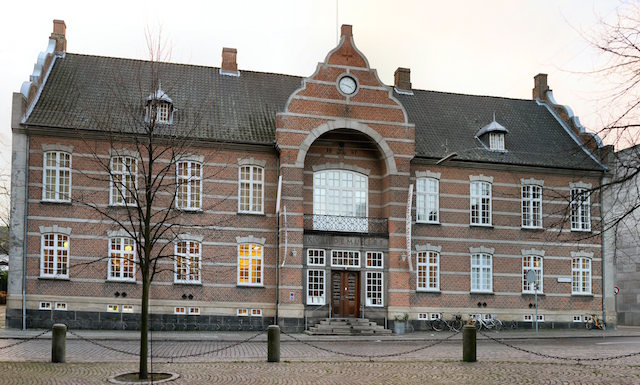
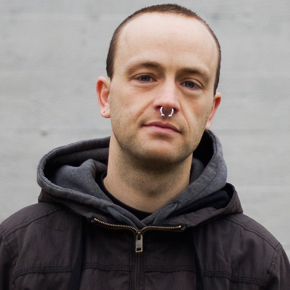
"When is Gender Measurable?"
The purpose of this workshop is to explore how quantitative methods are used in the construction of gender in academic and public discourses. The workshop will focus on how questions about gender are formulated and posed in quantitative experimental designs; on the hidden limitations in quantitative methodologies for disclosing and constructing “facts” about gender; and on the ways that data concerning gender differences are interpreted and over-interpreted in science and society.
-
Workshop programme can be downloaded here.
-
Registration required for this workshop. Click here to register!
- Download the "Gendering" workshop poster here
- See the video´s of biology Professor Anne Faust-Sterling and economy Professor Julie Nelson available on the IMC webpage: www.imc.au.dk/videos
Anne Fausto-Sterling
Dr. Anne Fausto-Sterling is a Professor of Biology and Gender Studies in the Department of Molecular and Cell Biology and Biochemistry at Brown University. She is a leading expert in biology and gender development and has achieved recognition for works that challenge entrenched scientific beliefs while engaging with the general public.
Using a groundbreaking new approach to understanding gender differences, Dr. Fausto-Sterling is shifting old assumptions about how humans develop particular traits. Dynamic systems theory permits one to understand how cultural difference becomes bodily difference. By applying a dynamic systems approach to the study of human development, Dr. Fausto-Sterling’s work exposes the flawed premise of the nature versus nurture debate.
Julie A. Nelson
Dr. Julie A. Nelson is a Professor at University of Massachusetts, Boston. She specializes in research on feminism and economics, with special interests in methodology and in implications for social and environmental policies. She is a feminist economist mostly known for her application of feminist theory to the discipline of economics. Her work focuses on gender and economics, philosophy and methodology of economics, ecological economics and quantitative methods. She was a founding board member of the International Association for Feminist Economics, and is among the most highly cited scholars in the field of feminist economics.
- Organizer: Interacting Minds Centre
- Contact: Lea Skewes ( etnols@cas.au.dk ), Emma von Essen ( vonessen@econ.au.dk )
Panel discussion: "Active Queering"
Time: Tuesday 17 March, from 10.00 -11.30 am
Location: Kvindemuseet, Domkirkepladsen 5, Aarhus C
Writer and speaker Mads Ananda Lodahl will interview biologist Professor Anne Fausto-Sterling and economist Professor Julie Nelson about gender from a queer perspective.
Lodahl focuses on society’s expectations of men and women, and how those expectations limit everybody. Homosexuals, bisexuals and transgender people directly violate the heteronormative order. In ways that are less direct but no less important, masculine women, feminine men, shy boys, and promiscuous girls also violate society’s gender expectations, and are discriminated against because of it.
This discrimination could be reduced by expanding the concept of gender normality to include a broader spectrum of people. However, Lodahl instead challenges the “normal” by making it visible, and therefore available for critique. He draws focus away from people that are marginalized from the norm, and focuses instead on the problems of the heteronormative world order.
Quote from Lodahl: “I believe that 90% of all people conflict with the heteronormative world order, but of course some conflict to a higher degree than others. In this way, most people stand to gain from a destruction of the heterosexual world order. But again…some have more at stake than others.”
-
Registration required for this event. Click here to register
-
Organizer: Interacting Minds Centre
-
Contact: Lea Skewes ( etnols@cas.au.dk ), Emma von Essen ( vonessen@econ.au.dk )
